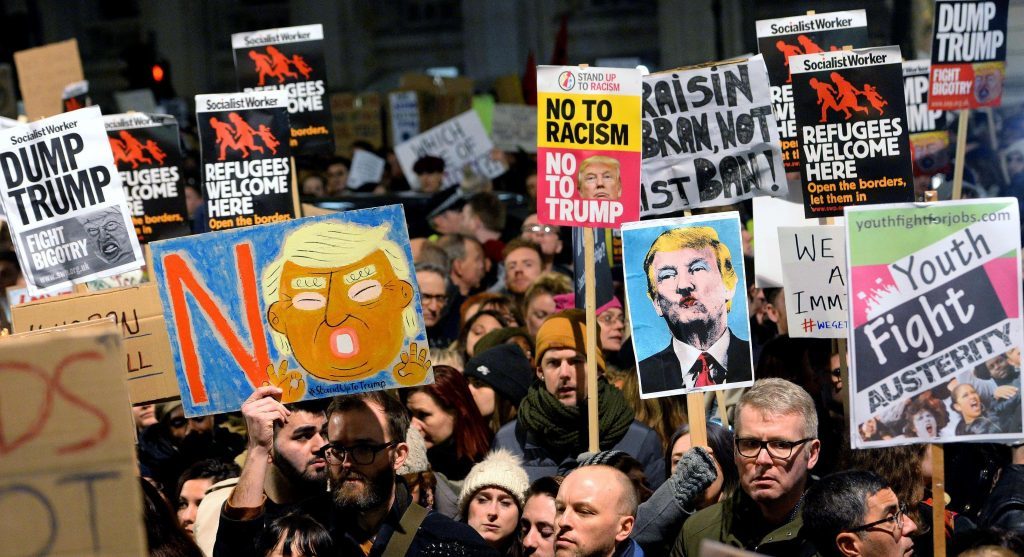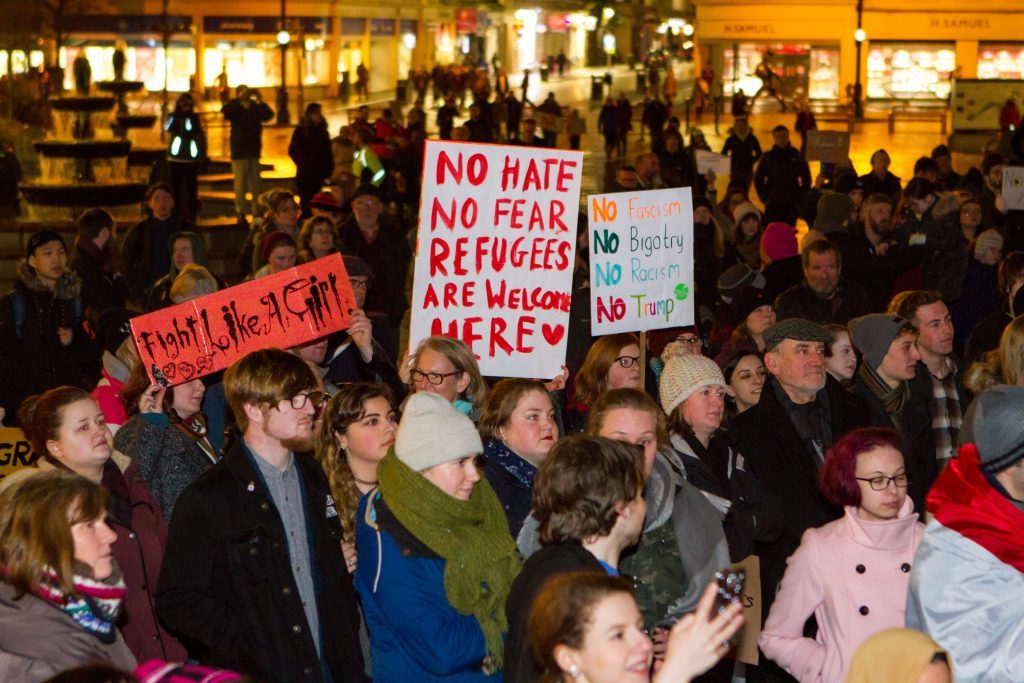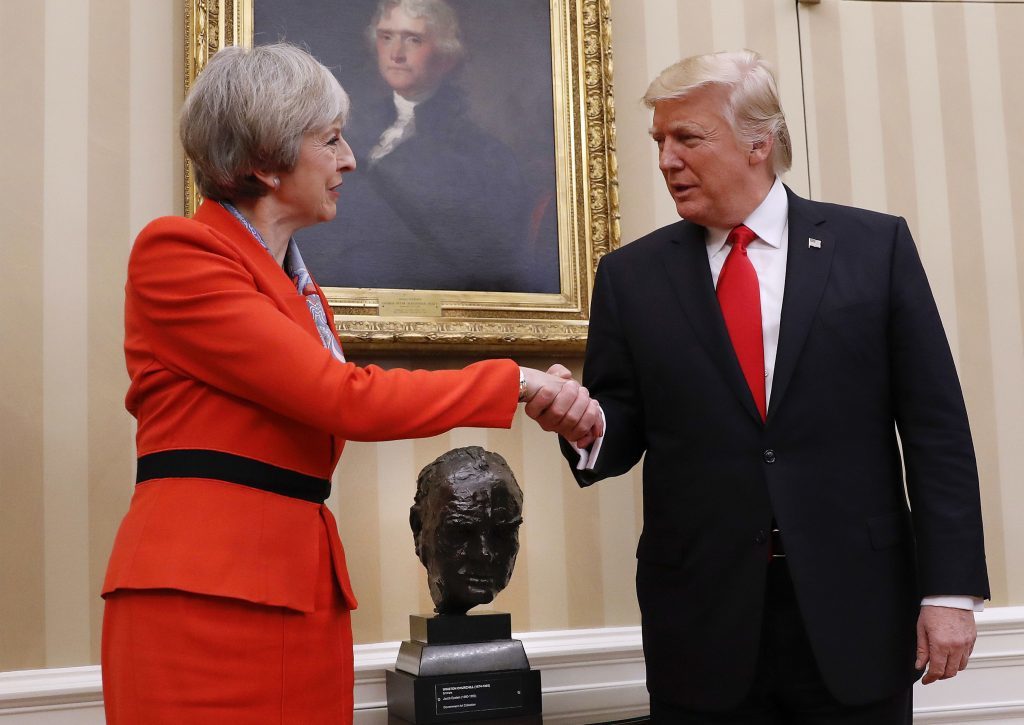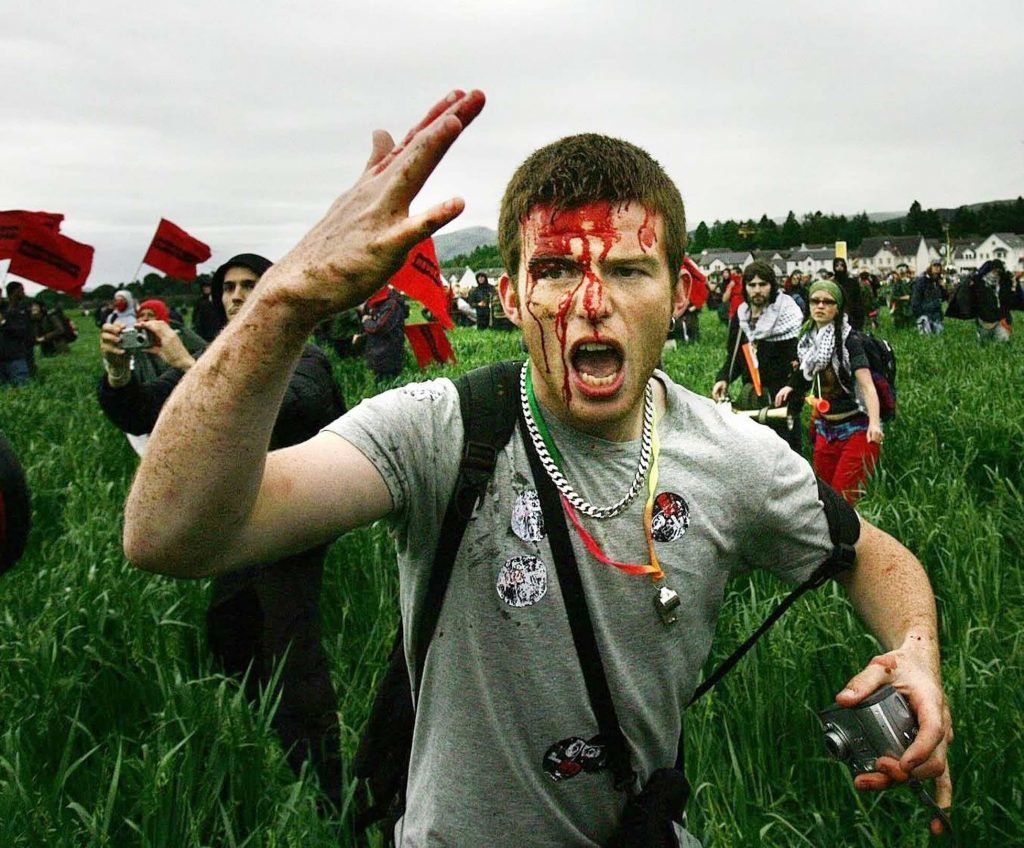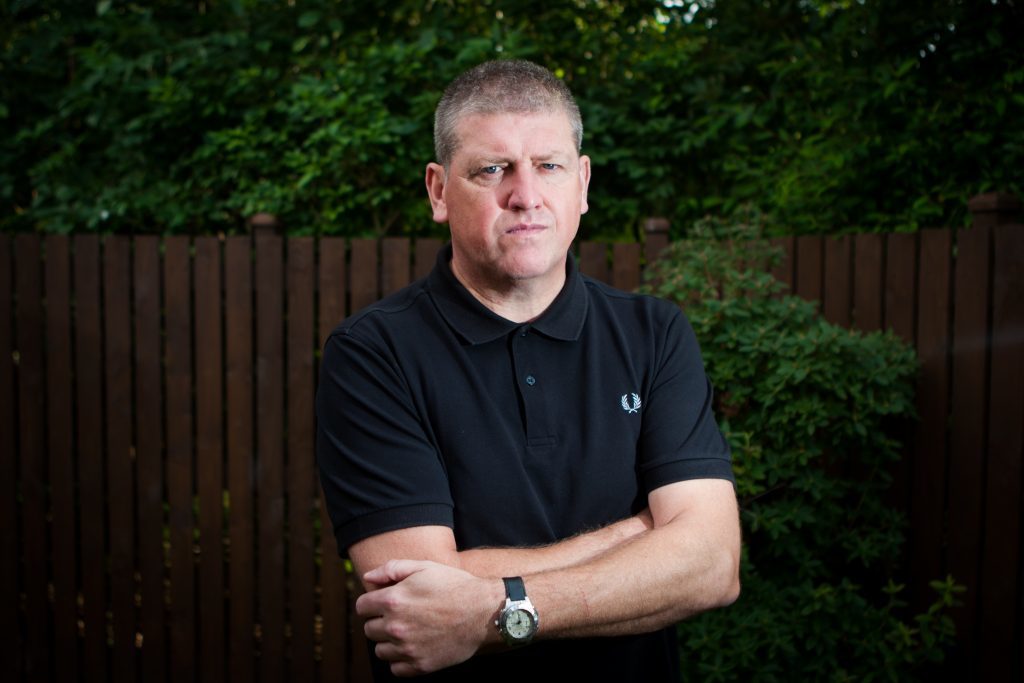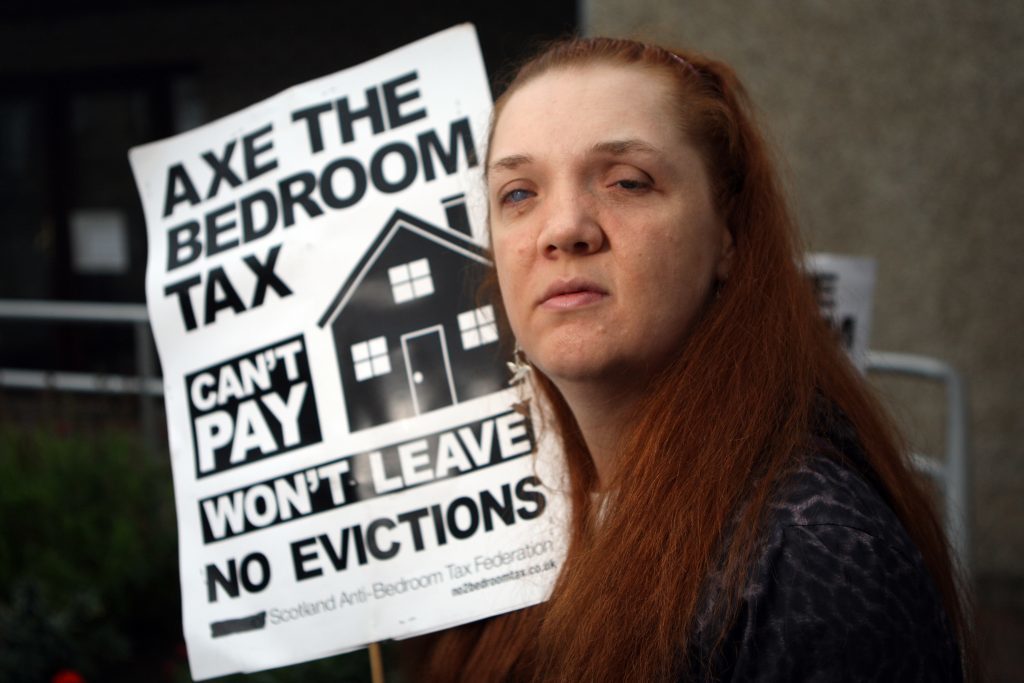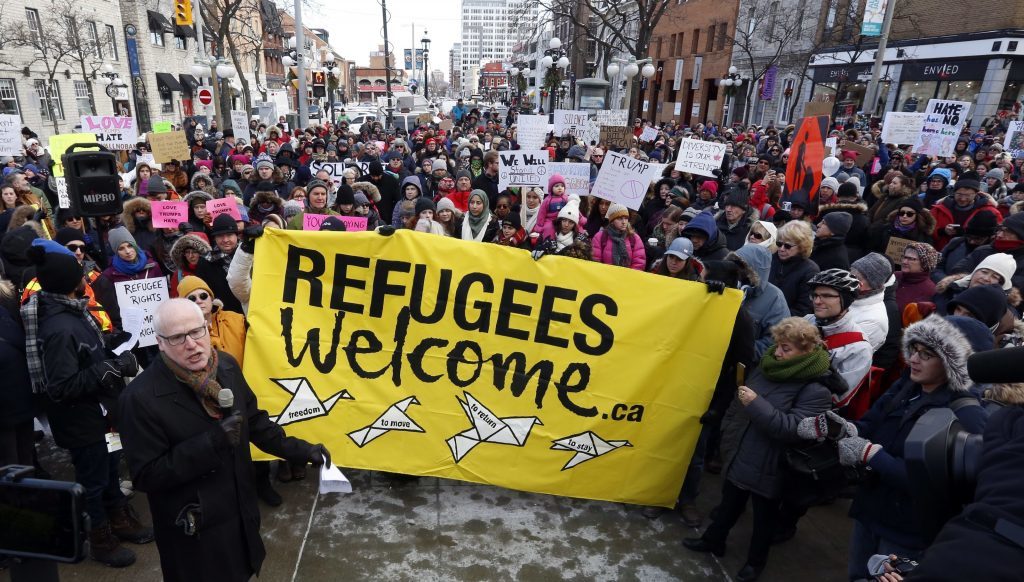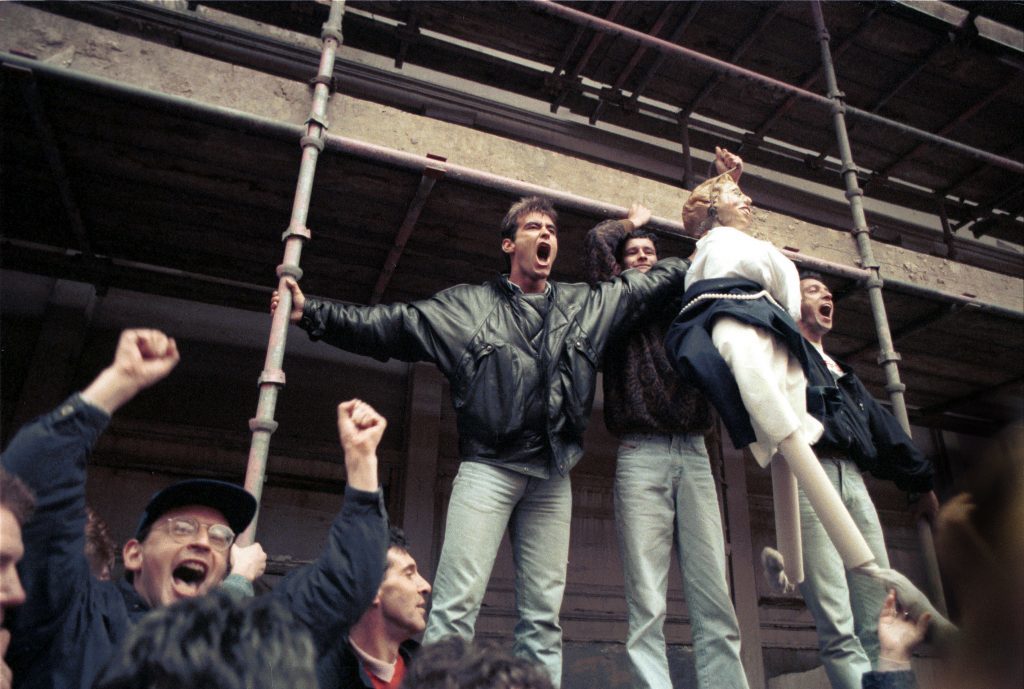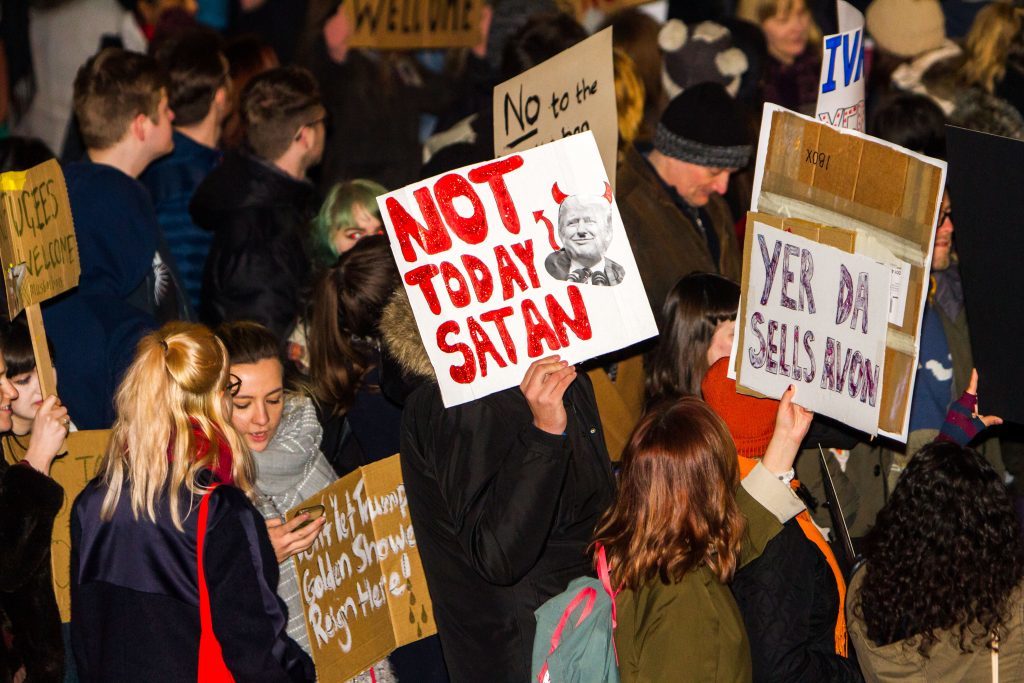From the G8 summit at Gleneagles to the latest anti-Donald Trump marches, Courier Country has been no stranger to political protests over the years. But do they really make a difference? Michael Alexander investigates.
They came in their hundreds. Men, women and children of all ages and all political backgrounds – united in solidarity to protest against US President Donald Trump’s “Muslim ban”.
The peaceful protests, which attracted around 300 people to each of the centres of Dundee and St Andrews on Monday night, were organised through social media after Mr Trump signed an executive order barring citizens of seven Muslim-majority countries for 90 days and suspending the refugee system for 120 days.
Similar gatherings in Edinburgh, Glasgow and London, saw thousands attend – and as of Tuesday more than 1.5 million people had signed a petition calling on Trump’s forthcoming state visit to the UK to be revoked.
But as Prime Minister Theresa May stood by the red carpet invitation she made to Trump during a meeting with him in Washington last Friday, and as the defiant president insisted the travel ban is necessary to stop “bad dudes” entering the US, what difference do such protests actually make?
From the high profile and at times volatile Make Poverty History marches which took place during the G8 Summit at Gleneagles in 2005 to the anti-poll tax and anti-bedroom tax rallies which took place respectively in 1990 and 2013, Courier Country is no stranger to demonstrations, that’s for sure.
From trade unionists standing outside council meetings to protest against austerity budget cuts to a number of vocal Dundee United fans unsuccessfully calling for the head of their club’s chairman after a catastrophic run of results last season, the outcome of such demonstrations can be mixed to say the least.
Yet according to seasoned campaigner Jim Malone, 56, who is Dundee Labour trade union group co-ordinator and Fire Brigade Union Palestinian support co-ordinator, the very act of protesting remains essential if democratic values and freedom of speech are to prevail.
He highlighted the “ridiculous” nature of Trump’s stance when the American government’s own statistics show that since 9/11, an average of two Americans have been killed annually by Islamic jihadist immigrants. That compares with the 11,737 shot dead annually by another American, including the 21 shot dead annually by armed toddlers!
“The organisers of Monday night’s marches should be patting themselves on the back,” said Mr Malone.
“It demonstrates the broad concern about the actions of a misogynist and racist elected president and leader of the free world.
“It’s typical of the response from Dundee when faced with prejudice and intolerance – like the time people stood up to the Scottish Defence League when they tried to take over the city centre in 2013.
“It’s about people coming together and showing that we can distance ourselves from bigots like Trump.”
Louise McLeary, 38, who is blind, was at the forefront of the Kirkcaldy Anti-Bedroom Tax protest group set up in 2013 – and the first person in Scotland to win a concession from the enforced payment of the Tory government’s controversial spare bedroom subsidy.
Along with others, she successfully argued that she should be exempt from paying a tax on her spare bedroom because she has supported accommodation needs.
She said:“Thanks to my victory,I was able to stand outside other tenants’ tribunals with placards to raise awareness. Some people were unsuccessful in their cases, but the fact that we protested meant the Scottish Government eventually had to step in. If no one had protested, the Westminster Tories would have had licence to do whatever they wanted. It gave people hope.”
Bill Mair, from the Fife branch of Solidarity, has been involved in numerous protests and campaigns over the years, inspired by the successful grass-roots “Can’t pay, won’t pay” campaign against the poll tax in Scotland.
He participated in the Axe The Bedroom tax campaign, and was also involved in The People’s Assembly campaign to apply consistent pressure to Sports Direct to pay workers at least minimum wage and provide decent working conditions – eventually forcing the company to publicly back down.
He said: “It is no secret that political martyrs, such as Solidarity co-founder Tommy Sheridan, were born out of the anti-poll tax movement in Scotland from 1989. Campaigners led a mass movement of protests and non-payment under the banner of leading to the repeal of a tax in 1992 that was seen as attacking the poor.”
Tommy Sheridan added: “We were fighting the Iron Lady, and those ordinary people melted down the Iron Lady and shifted her off to the political knacker’s yard, where she belongs.”
Comedian and political activist Mark Thomas, who’s appearing at Dundee Rep on Saturday, also welcomed the anti-Trump protests.
He said: “One of the most encouraging factors is the level of protest and opposition to Trump up and down the country and all over the world after just nine or 10 days of his presidency. It’s so hard to tell whether things will get better or worse but at least people are out there making their voices heard.”
